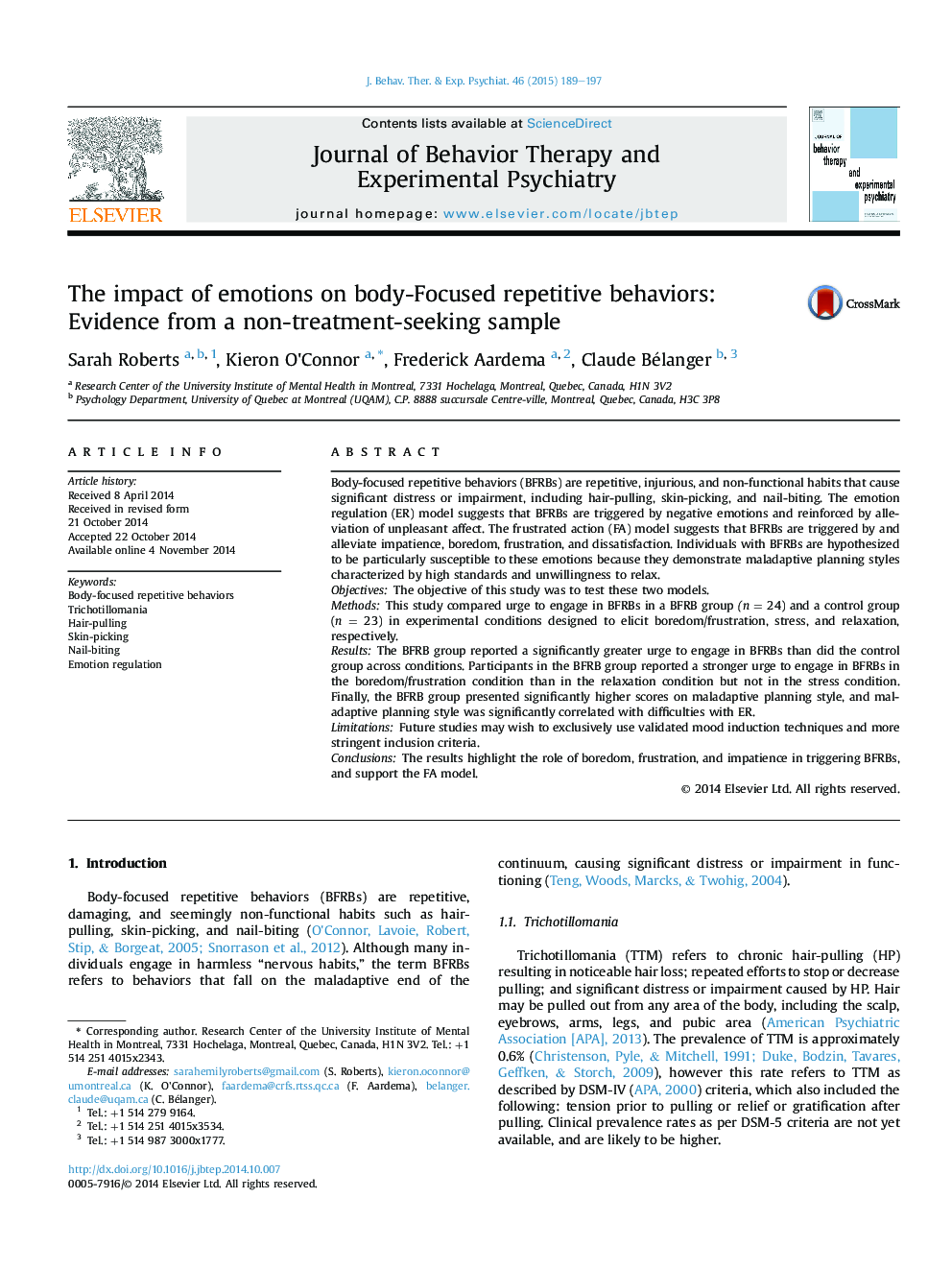| کد مقاله | کد نشریه | سال انتشار | مقاله انگلیسی | نسخه تمام متن |
|---|---|---|---|---|
| 910360 | 1473069 | 2015 | 9 صفحه PDF | دانلود رایگان |
• The BFRB group, compared to control, reported significantly more BFRBs and urges.
• The BFRB group reported greater urge to pull in boredom/frustration conditions.
• The BFRB group reported greater difficulty “snapping out” of emotions.
• Poor emotional regulation was related to pathological style of planning action.
• Pathological style of planning was associated with greater BFRB urge.
Body-focused repetitive behaviors (BFRBs) are repetitive, injurious, and non-functional habits that cause significant distress or impairment, including hair-pulling, skin-picking, and nail-biting. The emotion regulation (ER) model suggests that BFRBs are triggered by negative emotions and reinforced by alleviation of unpleasant affect. The frustrated action (FA) model suggests that BFRBs are triggered by and alleviate impatience, boredom, frustration, and dissatisfaction. Individuals with BFRBs are hypothesized to be particularly susceptible to these emotions because they demonstrate maladaptive planning styles characterized by high standards and unwillingness to relax.ObjectivesThe objective of this study was to test these two models.MethodsThis study compared urge to engage in BFRBs in a BFRB group (n = 24) and a control group (n = 23) in experimental conditions designed to elicit boredom/frustration, stress, and relaxation, respectively.ResultsThe BFRB group reported a significantly greater urge to engage in BFRBs than did the control group across conditions. Participants in the BFRB group reported a stronger urge to engage in BFRBs in the boredom/frustration condition than in the relaxation condition but not in the stress condition. Finally, the BFRB group presented significantly higher scores on maladaptive planning style, and maladaptive planning style was significantly correlated with difficulties with ER.LimitationsFuture studies may wish to exclusively use validated mood induction techniques and more stringent inclusion criteria.ConclusionsThe results highlight the role of boredom, frustration, and impatience in triggering BFRBs, and support the FA model.
Journal: Journal of Behavior Therapy and Experimental Psychiatry - Volume 46, March 2015, Pages 189–197
